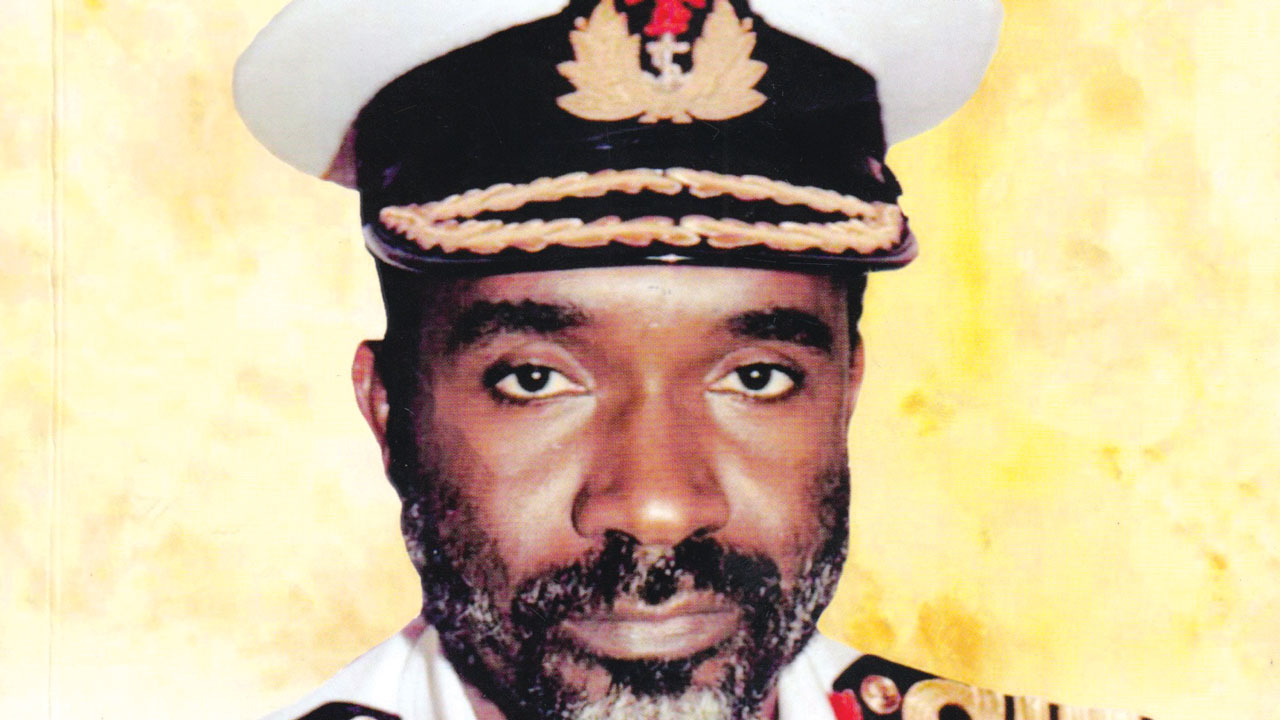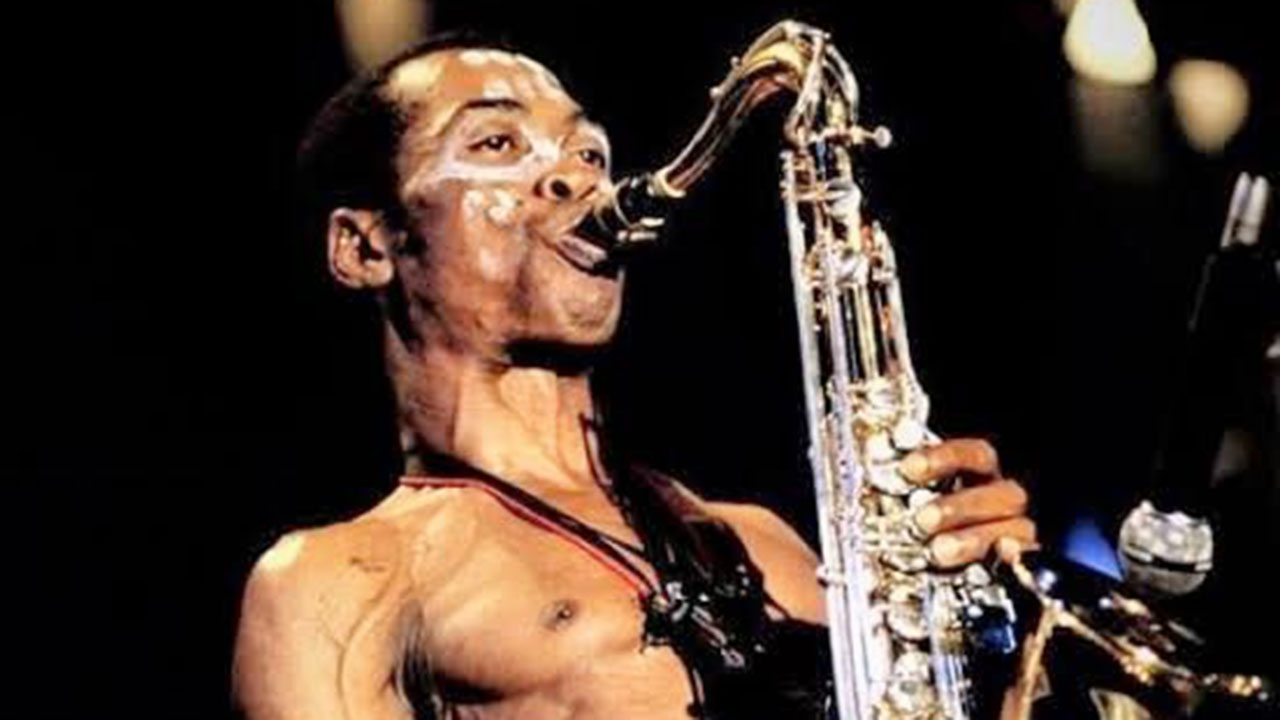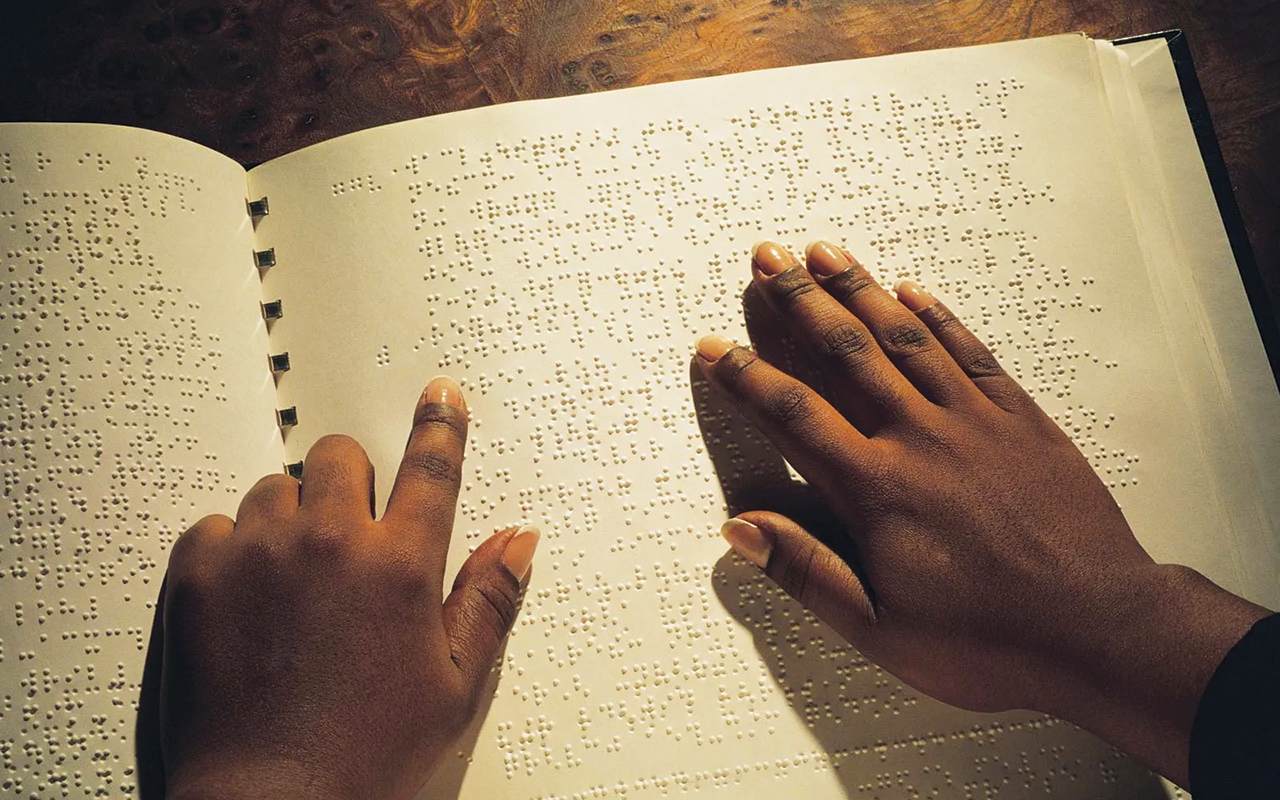
Footprints On Marble is Vice Admiral Murtala Nyako’s biography. The Editor-in-Chief of the defunct Newswatch magazine, Dan Agbese, writes it. It chronicles the life and times of the naval tactician, political gladiator, chief of the naval staff, deputy chief of defense staff, the pioneer military governor of Niger State and the two term civilian governor of Adamawa State of Nigeria.
Footprints tells Nyako’s influence and legacy on the growth and development of the Nigerian armed forces, the conduct of Nigerian military officers in Nigerian politics and society from 1966 till date.
It’s paradoxical to get this distinguished military officer embroiled in the chaotic and treacherous waters of Nigerian politics. The book captures a wide range of audiences, from the history of military intervention in Nigerian politics, civilian politics and governance, to political intrigue, Ibrahim Babangida’s maradona and the single mindedness of Admiral Nyako to craft a legacy for himself in his home state of Adamawa.
MayFive Media Limited, Ikeja, Lagos, Nigeria publish this paperback edition, first published in 2020. It has 23 chapters, a copious introduction, 462 pages, 16 pages of pictures, three pages of references and 17 pages of index.
Murtala Hammanyero Nyako was born on August 27, 1943 at Mayo Belwa. Like President Mohammed Buhari, who was the 23rd child of his father, Nyako was the 15th of Alhaji Hammanyero.
Nyako was enrolled in Mayo Elementary School in January 1952. He was troublesome, as he was the only boy who talked back to his elders because according to him, he “liked to speak his mind.”
His family felt the primary school education would cure him of his rascality. Nyako was registered in the primary school as Murtala Mayo Belwa but in form five at Government Secondary School, Yola, it was changed to Murtala Alhaji Hammanyero Nyako.
Early in his life, Nyako holds the belief that as a privileged son of a rich man, “he could never run away from his responsibility towards the needy. He knew too that to give, he must have. He chose to have in order to give. For this reason, Nyako has never had the ambition to accumulate wealth. For him, money is a means to an end; that end being, in both secular and sacerdotal sense, the good of those less fortunate than him.”
In May and June 1963, Nyako and Forbes Rudolph, his schoolmate, were formerly enlisted as officer cadets in the Royal Nigerian Navy. He attended the Britannia Royal Naval College, Dartmouth, United Kingdom. He graduated from the college on July 27, 1966.
Sadly, before Nyako finished his military training, turmoil engulfed Nigeria and the military had taken over the country. Five majors and a captain in the Nigerian Army, led by Major Chukwuma Nzeogwu had on January 15, 1966 staged a military coup against the administration of Prime Minister Abubakar Tafawa Balewa. The coup failed and the General Officer Commanding the Nigerian Army, Major General Johnson Aguiyi Ironsi was invited to temporarily administer Nigeria and restore order to the country.
On July 29, 1966, Ironsi was overthrown and replaced by Colonel Yakubu Gowon. All his policies and decrees were repealed. But without any substantive decree replacing the unitary form of government he introduced, Ironsi’s unitary system of government remained to this day. The military governor of Eastern Region, Lt. Col. Emeka Ojukwu did not recognize Gowon as head of state.
Nyako watched the unfolding political drama from his College home in Dartmouth, England. Finally, Ojukwu settled for secession. And by November 1966, Ojukwu had ordered all military officers of Igbo extraction to move back to Eastern Nigeria. At the time up to 70 percent of naval personnel were Igbo. And to block Ojukwu from secession, Gowon on May 27, 1967 established 12 state structure for civilian Mr. Ukpabi Asika as administrator.
Nyako was on board NNS BENIN as second in command when the civil war broke out. The Nigerian navy headed to the South Eastern state island of Bonny to prosecute the war.
But by September 19, Ojukwu had deployed Victor Banjo and Albert Okonkwo to takeover Mid West. Nyako was not in the country when the war ended on January 12, 1970, the navy had sent him on a course in Cochi, India from 1969 to 1970. While Nyako was in India, his mother thought it was time for him to marry. And she found Nana Asmau, a tall dark graduate of Dala Teacher’s Training College, Kano. Nyako accepted the proxy marriage after the civil war, later going ahead to add three more wives. Not long after his first marriage, Murtala Muhammed created six more states, making Nyako the governor of one of them, Niger State.
By a remarkable stream of luck, Nyako went on to become chief of Naval Staff; two term governor of Adamawa State. Nigerian military rulers are like buccaneer pirates but while the British buccaneers raided ships and stole gold for the British Crown, Nigerian military rulers stole for personal gain.
I commend Nyako’s Footprints on Marble as a compelling reading for every patriotic Nigerian. Nyako’s Footprints is the history of Nigeria, its cultures, traditions and ethics as exemplified by the unprincipled manner our politicians change their parties.
The author Dan Agbese is a skillful writer, historian and distinguished journalist. He studied mass communication at the University of Lagos; journalism at Columbia University, New York, USA. A former Editor of Nigerian Standard newspaper, former general manager of Radio Benue, Agbese was Editor in Chief of the muck raking Newswatch magazine.
He is the author of many books among them are: Turning Points in the Political History of Nigeria, Nigeria their Nigeria; Conversation with IBB; Energy Crisis in Nigeria; Conversation with History and Babangida: the military, Politics and Power in Nigeria. Agbese is an authority on Nigerian politics and society since independence.






